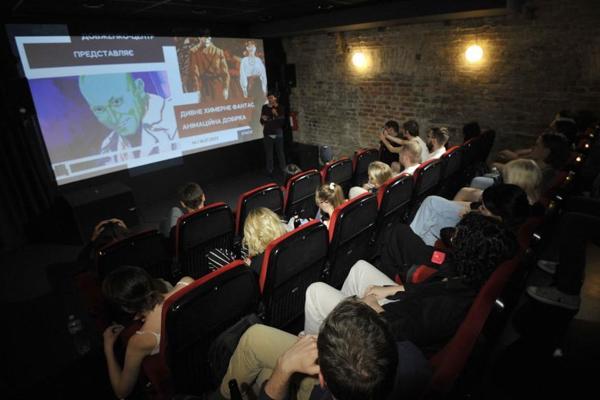Ukraine’s reopening cinemas offer refuge from reality
KIEV


From the Hollywood blockbuster to the high-brow film noir, the silver screen offers a few hours’ peace in a darkened refuge from the mundane grind of the nine to five.
But Ukraine’s filmgoers have begun seeking literal shelter in subterranean screenings offering protection from the ever-present threat of missiles from above.
After Russia’s invasion in February shuttered picture houses nationwide and production ground to a halt, the country’s resilient film industry is making a tentative comeback.
KINO42, in downtown Kiev, is among around 20 of the city’s 50 or so cinemas that have reopened in recent weeks. As the capital’s only underground cinema, it is a unique offering for movie buffs wary of air raids.
The screen, which has 42 seats around four meters below street level, reopened in June, its program of upcoming screenings displayed on a backlit board above the newly added words “cinema shelter.”
“It’s a literal cinema shelter since it’s located in a basement,” Ilko Gladshtein, a partner in the business, told AFP at the recent launch of its program of Ukrainian classics.
The theater, which first opened in 2019, has always been underground -- but while this was once an unremarkable aspect of its architecture, Gladshtein says it has become a “unique selling point.”
“KINO42 is the safest cinema in Kiev right now. We don’t interrupt screenings during air raids,” he told AFP.
A little further down the street, the much larger above-ground Zhovten picture house, which is nearly a century old, was among the first of Kiev’s reopened venues.
The multi-screen playhouse sold out a 400-seat auditorium on the launch night of its Ukrainian classics program with a showing of Sergey Paradzhanov’s 1965 opus, “Shadows of Forgotten Ancestors.”
“We wanted to support the country’s economy as well as people’s psychological wellbeing,” said its director Yulia Antypova, 46.
“Psychologists say that this kind of mental decompression, and the opportunity to escape to another reality, are extremely important.”
Here, the possibility of missile strikes is a constant threat.
Zhovten interrupts screenings for 20 minutes when the sirens begin and asks audiences to get to a nearby shelter.
If the alert lasts longer, the screening is cancelled and the customers are asked to come back with their tickets another day.
The return to the silver screen has been gradual, with ticket sales about 30 percent of pre-war figures.
